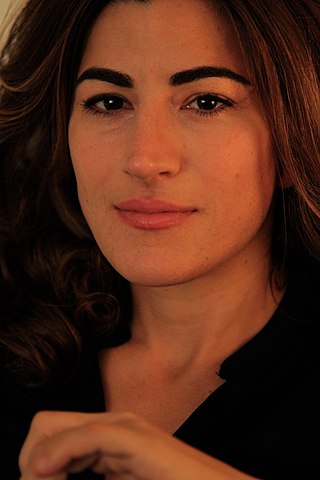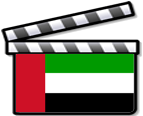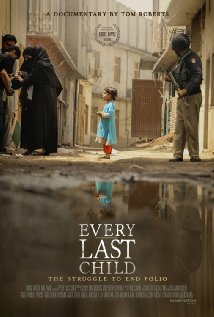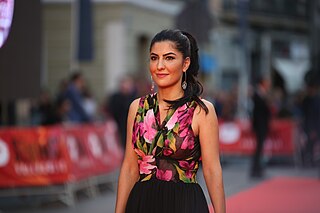Related Research Articles
This article covers the various forms of transport in the United Arab Emirates (UAE), by road, rail, air, water, etc.

Jehane Noujaim is an American documentary film director best known for her films Control Room, Startup.com, Pangea Day and The Square. She has co-directed The Great Hack and The Vow with Karim Amer.

The Emirate of Abu Dhabi is one of seven emirates that constitute the United Arab Emirates. It is the largest emirate, accounting for 87% of the nation's total land area or 67,340 km2 (26,000 sq mi).
Arab cinema or Arabic cinema refers to the film industry of the Arab world. Most productions are from the Egyptian cinema.

Cinema of the United Arab Emirates began with a number of feature films that were broadcast on national television since the late 1980s.

Nujoom Alghanem is an Emirati poet, artist and film director. She has published eight poetry collections and has directed more than twenty films. Alghanem is active in her community and is considered a well established writer and filmmaker in the Arab world. Her achievements in the arts have been recognized both nationally and internationally. She is the cofounder of Nahar Productions, a film production company based in Dubai. Currently she works as a professional mentor in filmmaking and creative writing, as well as a cultural and media consultant.

Abu Dhabi is the capital city of the United Arab Emirates (UAE). The city is the seat of the Abu Dhabi Central Capital District, the capital city of the Emirate of Abu Dhabi, and the UAE's second-most populous city after Dubai.

The Abu Dhabi Film Festival, formerly the Middle East International Film Festival (MEIFF), was an international film festival held in the city of Abu Dhabi, United Arab Emirates from 2007 to 2015.
Mohamed Said Mahfouz (Arabic: محمد سعيد محفوظ is an Egyptian writer and filmmaker who has worked for the BBC since 2006. He was the presenter and scriptwriter of the widely popular, daring show 'Maqass El-Raqeeb' on Abu Dhabi TV, focusing on liberties and human rights in the Arab world. He produced a number of independent documentaries and won several awards, of which the last was from Al Jazeera International Documentary festival in April 2009. He has been in the UK since March 2006 where he obtained his Master of Arts in Documentary from Royal Holloway University. Currently, he is pursuing his Ph.D at the same university in New Media and Filmmaking.

Teta, Alf Marra is an Arabic documentary film about a feisty Beiruti grandmother.
Mahmoud Kaabour is a filmmaker, writer, and public speaker from Beirut.

Sea Shadow is a 2011 Emirati coming-of-age film written by Mohammed Hassan Ahmed and directed by Nawaf Al-Janahi. The film was the first from Image Nation to be filmed in the United Arab Emirates. The film premiered at the Abu Dhabi Film Festival in October 2011 and was released in theaters throughout the Arab states of the Persian Gulf in November 2011. It premiered in the United States at the Palm Springs International Film Festival in January 2012.
Tamer El Said is an Egyptian filmmaker. He wrote, produced and directed numerous films including Take Me (2004), an award-winning documentary about five friends who unwittingly became political prisoners in Morocco, and the short film On a Monday (2005) on an old married couple who rediscover their relationship. His first fiction feature In the Last Days of the City was shot in Cairo, Berlin, Baghdad and Beirut and premiered in 2016 at the Berlin International Film Festival. He is co-founder of several independent initiatives in Cairo, including Cimatheque Alternative Film Centre, Mosireen, and Zero Production.
A growing number of film festivals are held in the Arab world to showcase films from the region as well as international standouts. In addition, institutions and organizations in other parts of the world are increasingly honoring the new generation of filmmakers in the Arab world with Arab film festivals.

The Square is a 2013 Egyptian-American documentary film by Jehane Noujaim, which depicts the Egyptian Crisis until 2013, starting with the Egyptian Revolution of 2011 at Tahrir Square. The film was nominated for the Academy Award for Best Documentary Feature at the 86th Academy Awards. It also won three Emmy Awards at the 66th Primetime Creative Arts Emmy Awards, out of four for which it was nominated.

The Wanted 18 is a 2014 Palestinian-Canadian animated documentary about the efforts of Palestinians in Beit Sahour to start a small local dairy industry during the First Intifada, hiding a herd of 18 dairy cows from Israeli security forces when the dairy collective was deemed a threat to Israel's national security. The film combines documentary interviews with those involved in the events, archival footage, drawings, black-and-white stop-motion animation as well as re-enactments, and was co-directed by Canadian filmmaker Paul Cowan and Palestinian visual artist and director Amer Shomali. The film was the Palestinian entry for the Best Foreign Language Film at the 88th Academy Awards but was not nominated.

Every Last Child (2014) is a Pakistani and UAE documentary film directed and produced by Tom Roberts and made under the Imagenation Abu Dhabi FZ banner. Roberts also wrote the story of the film. The film was released in three different languages—Urdu, English and Pashto.

Kismet: How Turkish Soap Operas Changed the World is a 2014 documentary film written and directed by Nina Maria Pashalidou about Turkish television drama series, commonly referred to as Turkish soap operas. It is Pashalidou's second feature documentary.

Zaynê Akyol is a Canadian filmmaker, producer and photographer. She predominantly focuses on documentary film and is known for her feature-length documentary film Gulîstan, Land of Roses (2016), which was supported by the National Film Board (NFB) and MitosFilm in Germany.
Maha Maamoun, is an Egyptian award-winning visual artist and curator based in Cairo. She is a founding board member of the Contemporary Image Collective (CiC), an independent non-profit space for art and culture founded in Cairo in 2004. She also co-founded the independent publishing platform called Kayfa-ta in 2013. She was awarded the Jury Prize for her film Domestic Tourism II at Sharjah Biennal 9 (2009). Maamoun is a fellow of the Academy of the Arts of the World.
References
- ↑ "Cairo Drive (2013) - IMDb".
- ↑ "Cairo Drive: Abu Dhabi Review". 12 November 2013.
- ↑ "Sherief Elkatsha".
- ↑ "Cairo Drive: Abu Dhabi Review". 12 November 2013.
- ↑ "Film Review: 'Cairo Drive'". 9 November 2013.
- ↑ "Film Review: 'Cairo Drive'". 9 November 2013.
- ↑ "Cairo Drive: Abu Dhabi Review". 12 November 2013.
- ↑ "Sherief Elkatsha, Cairo Drive".
- ↑ "Cairo Drive (2013) - IMDb".
- ↑ "Cairo Drive: Abu Dhabi Review". 12 November 2013.
- ↑ "'Cairo Drive' review: Portland International Film Festival selection captures atmosphere of Arab Spring". 5 February 2014.
- ↑ "Awards". Archived from the original on 14 September 2014. Retrieved 29 January 2015.
- ↑ "DOC NYC 2014 Award Winners Announced!". 21 November 2014.